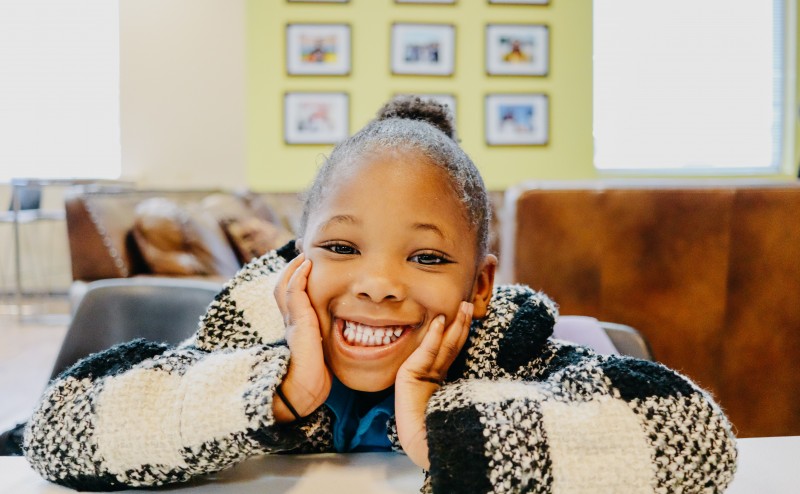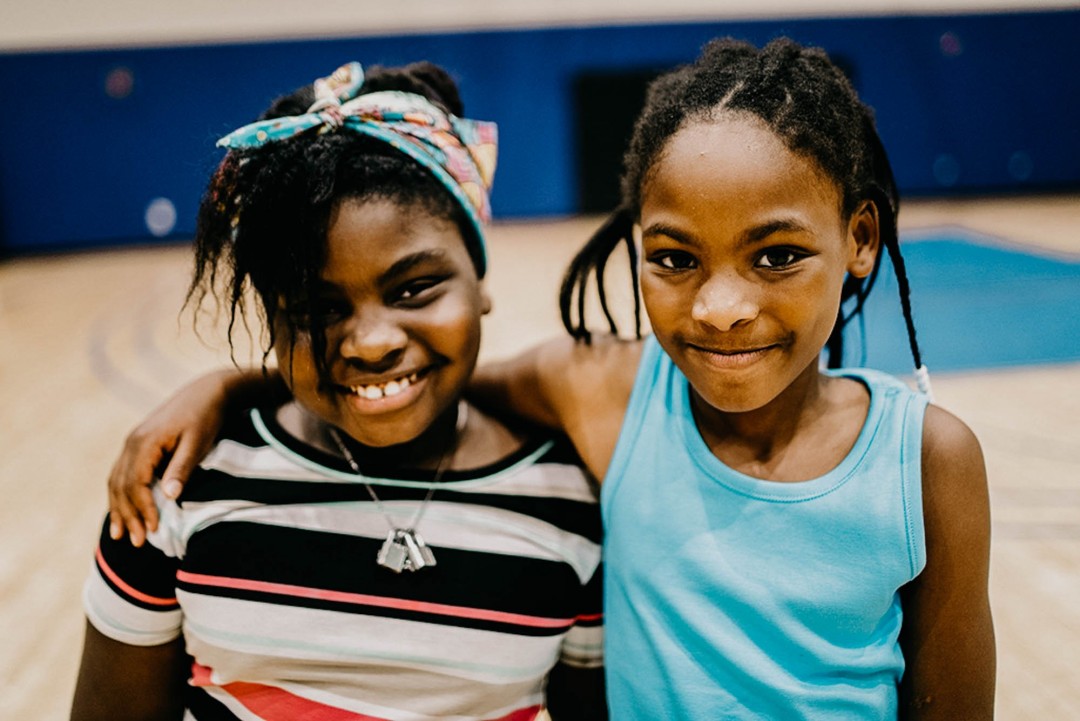What We Do
We run community centers to help people discover their gifts and purpose, nurture those and then overcome barriers.

Our Five E Framework
We partner with the community to create and run intentional programming from our centers. We work with all ages, from bingo events for seniors to sports programs and leagues to out-of-school programs for school-age children. Our biggest focus is on children and youth with programming taking place on weekdays after school. Our Five E Framework allows us to respect the uniqueness of each community and collaborate across five main pillars:
Engagement
Engagement starts with knocking on doors. We actively meet with and listen to the community - when first arrive and throughout out partnership in a community. From walking the neighborhood to block parties to holiday events, we gather together and build trust with one another.
Exploration
You can’t be what you can’t see. Exploration is about exposure to new possibilities. From field trips to art enrichment, we strive to plan and execute activities as part of our programming that foster curiosity, dreaming, and a deep belief that more is always possible.
Education
Education is a big focus for our programming. Studies strongly correlate literacy with cascading effects on the life trajectory of a child. If a child isn’t reading at or above their grade level by third grade, then they are far more likely to experience poverty, incarceration, or a host of other negative outcomes. Our after-school programming strongly focuses on education through literacy, the arts, and exposure to new learning experiences.
Expression
We believe that healthy expression refers to the ability to move through life relating to yourself and others in a way that reflects adequately developed social and emotional skills. This includes self-esteem, internalized beliefs, communication, self-awareness, health conflict resolution, and more. Not only does our staff intentionally incorporate aspects of this into our programming, but they are trained to look for teaching moments to reinforce healthy emotional and relational patterns.
Encounter
As a faith-based organization, we have a high value for the presence of God. All of our programming is choice-based, but our heart is that as we model the love of Christ and the culture of His kingdom, transformation can happen in the lives of those we serve. We hope that through our organization, others have real encounters with a loving and powerful God.
Why Community Centers?
Often when people think of change in the context of poverty, they think of finding ways to leave or "get out" of the neighborhoods experiencing poverty. Because community centers exist within the communities they serve, they provide a chance to effect change IN the community. They allow us to be a present resource for the long-haul. Within our centers, we seek to create home-like environments that promote safety, stability, and relationships. Community Centers also provide an effective foundation for being a hub of resources (whether provided by us or through partnership with other organizations) to the neighbors we work alongside. As a network, all of our community centers have common values, programming structure, and funding, but have enough autonomy to adapt to the needs and desires of the communities that they serve.

Change Starts with Listening
The communities we partner with may appear on the surface to have similar symptomatic struggles like higher than average crime rates or lower than average literacy levels, but this does not mean they have the same needs. These symptoms and many others may stem from differing causes, express differently, or may not be perceived as the most pressing problems by the community. Our approach has always been and will always be a "listen-first" approach. Our namesake stems from the idea that behind every door is a unique story of triumph, struggle, joy, fear, hope, dreams achieved and dreams delayed.
Transformation assumes that what is needed for change is or was at one-time present. When it comes to the work we do, many people assume that a change of geography or simply adding more resources is what is needed for individuals to experience change. We believe that people can experience a fulfilling life in the community they call home.
What Does Change Look Like?
We seek to change both the narrative about poverty and the experience of poverty. We all have beliefs, spoken or unspoken, conscious or unconscious surrounding poverty. Most of what we think or believe is shaped and formed by our experiences. It is through examining other perspectives, being exposed to new experiences or ideas that our own narratives are challenged. As an organization we seek to lovingly challenge and educate wrong narratives wherever we encounter them. This starts with ourselves. We continually seek to have difficult conversations inside of our organization, to lean into tension, to seek truth, but always in love, and always while believing the best.
Additionally, we want change the practical experiences of poverty and the restoration of resources to the communities that we serve. This includes resources we provide through after school programs, literacy, senior citizen programming, parent education, community events, recreation leagues, entrepreneurial training, and more. The resources we cannot provide ourselves, we seek to provide access to through partnerships with governmental and other private organizations.

How We Define Poverty
We define poverty as more than just material poverty, or the lack of the ability to meet basic needs. Poverty is being stuck in survival instead of thriving. Poverty can be material poverty, relational poverty, spiritual poverty, emotional poverty. Many people are experiencing poverty, and they may not be aware of it. It is easy to spot material poverty, but as an organization we desire to see the kingdom of God confront and transform poverty of all kinds. Poverty is lack, wherever it is found. Poverty can be an internal reality and mindset, as well as an external reality.